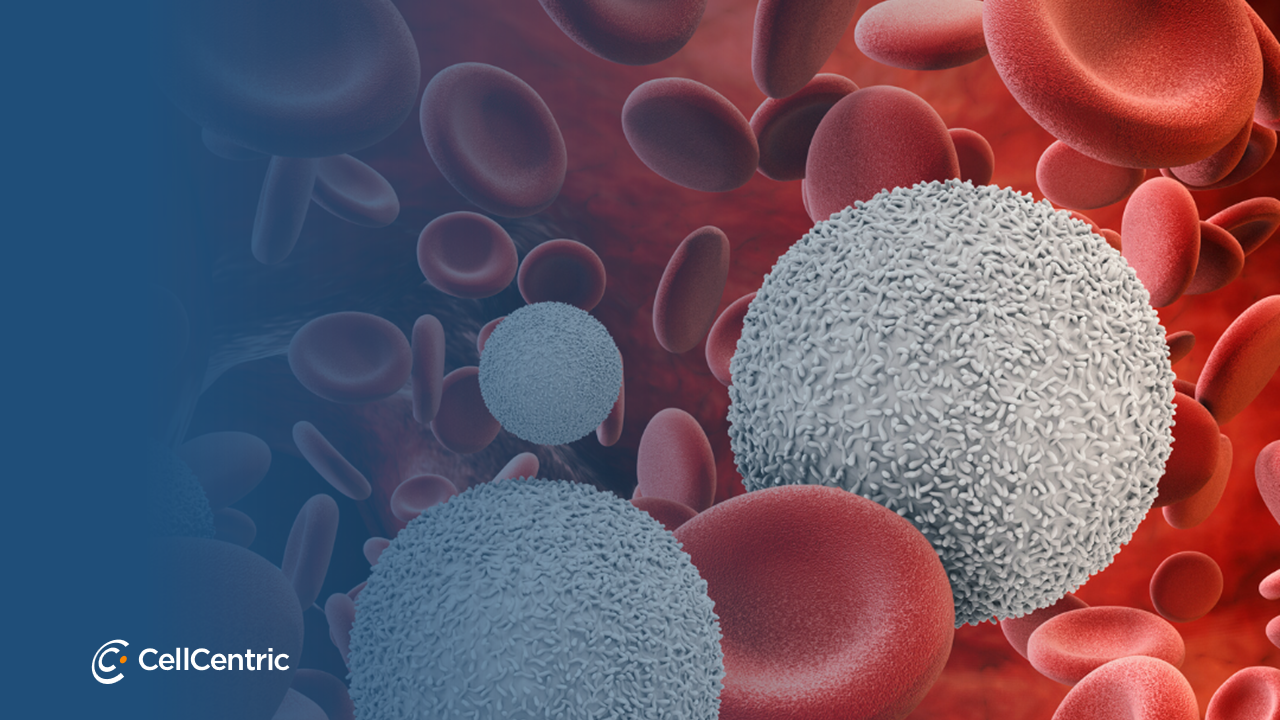- Inobrodib exhibits encouraging preclinical and early-phase clinical activity through disrupting the action of p300/CBP at regulatory elements controlling key cancer genes.
- Inobrodib is the first in a new class of drug with promise in relapsed refractory multiple myeloma and other haematological malignancies.
- Patients are receiving the drug, both as monotherapy and in combination with existing agents, as part of ongoing Phase I/IIa clinical trials.
- Further clinical data will be announced at the American Society for Hematology annual meeting (ASH), San Diego 9-12 December 2023.
Cambridge, UK, November 2023: CellCentric, a UK-based biotechnology company, today announced the publication of a cornerstone paper in Cancer Cell. The work builds on pre-clinical and clinical collaborations, notably with Professor Tim Somervaille of the Cancer Research UK Manchester Institute. The paper, titled, Therapeutic targeting of EP300/CBP by bromodomain inhibition in hematologic malignancies, reports on the therapeutic mechanism of inobrodib and relevant clinical results.
The paper demonstrates inobrodib’s action as a potent and selective inhibitor of the bromodomains of p300 and CBP, and shows how it has a profound impact on the regulatory elements which control expression of key cancer driver genes. Inobrodib induces a significant redistribution of p300/CBP away from sites occupied by oncogenic master transcription factors. This novel approach is distinct from other oral agents such as the IMiD and CELMoD class of drugs. The data show that this mechanism of action is synergistic with a number of existing and developmental agents.
The paper also describes initial data from a Phase 1a/2b haematological malignancy clinical trial. Inobrodib can be well tolerated whilst clearly demonstrating potential in treating relapsed refractory multiple myeloma and AML.
Inobrodib is an oral drug, a capsule taken twice daily. A key patient preference is for treatments that are easy to administer and can be taken in community settings. This also reduces the overall healthcare burden.
“We are pleased to share how targeting the bromodomain of p300/CBP can deliver a new way to treat specific blood cancers. The mechanism of action is more targeted than might be anticipated, offering clear potential to be a well tolerated new type of treatment” said Professor Tim Somervaille, Professor of Haematological Oncology at the Cancer Research UK Manchester Institute and The University of Manchester.
Dr Emma Searle, Consultant Haematologist at The Christie NHS Foundation Trust, who has overseen the care of many of the patients on the clinical trial, added: “Early clinical data shows promising tolerability, a key factor in treating patients with relapsed, refractory multiple myeloma who have exhausted standard-of-care therapies. We look forward to sharing efficacy data at ASH in December.”
Leif Bergsagel, Professor of Medicine for the Mayo Clinic College of Medicine, and a consultant in the Division of Hematology and Medical Oncology, Department of Internal Medicine, at Mayo Clinic in Arizona, said “This new paper supports that targeting p300/CBP to treat haematological malignancies is showing increasing potential. It is clearly a distinct new approach beyond existing standard of care therapies, and others in late stage development.”
CellCentric’s ongoing blood cancer trial (NCT04068597) involves patients with a range of haematological malignancies, including in relapsed/refractory multiple myeloma. Expansion cohort data, highlighting inobrodib in combination with pomalidomide and dexamethasone, will be announced by CellCentric at the 65th ASH Annual Meeting, December 9-12, 2023, in San Diego.
Read the full paper here: https://www.cell.com/cancer-cell/fulltext/S1535-6108(23)00366-5
About inobrodib
Inobrodib is a new type of treatment for people with cancer. Delivered as an oral capsule, it is easy for patients to take and can be used at home without the need for intensive monitoring. As it has a good safety profile for a drug in this setting, it may be used by those who are unable to tolerate other treatments, including the elderly and frail.
This potentially represents a significant benefit over existing treatment options as it enables a wider range of patients to be treated, including those who want to be treated closer to home. Being an oral capsule, it has the potential to present a lower overall burden on the healthcare system as compared to more complex therapies, such as cell-based therapies. In June 2023, CellCentric was granted orphan drug and fast track designation status from the FDA for inobrodib.
About CellCentric
CellCentric is an innovative UK-based biotechnology company with offices in Cambridge and Manchester. The company was spun out from the University of Cambridge, by pioneering developmental biologist Professor Azim Surani FRS, CBE, who wanted to further explore the potential of epigenetics to deliver new treatments. From its origins, CellCentric built a network of research and evaluation relationships with over 25 leading academic research groups worldwide.
CellCentric’s research evolved to focus on twin acetyl transferase proteins, p300 and CBP, that act as transcription co-activation factors, and that drive the expression of genes important in cancer progression. CellCentric has investigated over 50 epigenetic-related targets as new ways to treat disease, and specifically cancer. The company actively pursued multiple drug discovery programmes before focusing on p300/CBP inhibition and inobrodib.
About The Christie
The Christie is a specialist cancer centre in Manchester and has more than 120 years of expertise in cancer care, research and education. It is one of Europe’s leading cancer centres, treating over 60,000 patients a year.
The Christie is one of Europe’s largest experimental cancer medicine centres and an international leader in research and development with around 650 clinical studies ongoing at any one time. Visit www.christie.nhs.uk to find out more or follow The Christie on social media @TheChristieNHS



